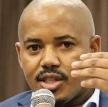The esteemed William Saunderson-Meyer in his article, “A Zuma Timebomb Explodes” dated 19 March 2021 misreads our policy stance relating to free access to higher education for the poor as well as our proposals on additional funding to recapitalize NSFAS. William Saunderson-Meyer writes:-
“….billions of rands have been spent on expanding tertiary access to the point that 90% of the population, as determined by a household means test, qualifies. “The universities, donor organisations and big business were bludgeoned by the government into assisting, although most realised that this was likely to be an ever-expanding and bottomless pit. So it has proved to be. Student demands have each year become more extravagant and in 2021, yet again, the money has run out and the fresh-faced revolutionaries are running amok. “
This year the National Student Financial Aid Scheme (NSFAS) needs another R7bn on top of the R42bn it is already spending. In protest, the SA Union of Students this week sought to close down all 26 universities until their demands for zero fee increases and for all historical debt to be written off are met.”
The Constitution of the Republic of South Africa requires that all citizens have access to education and equal access to educational institutions. Education and training is vital to the development of society because it is through education and training that men and women can be better prepared for life.
It is an empirical fact that there exists a strategic link between higher education access, poverty eradication, social mobility, economic competitiveness and social justice as well an increase in the labour productivity of a nation’s economy. The strategic link between national educational levels, literacy, economic competitiveness as well as individual income has long been established (Nelson & Phelphs, 1966)
According to Nelson & Phelphs (1966), “macro-economic growth and investment levels of nations are complementary with the educational levels of the nation’s workforce corps”
Empirical studies have long established that higher education access is correlated with better employment outcomes and greater labour market participation. According to Rodrik (2006:14), “it takes a completed university degree to mostly escape unemployment in South Africa”, Rodrik (2006:14).
Empirical studies also indicate that educated and/or trained skilled workers derive value to employers due to innovativeness, the ability to easily harness new technologies and production methods, greater problem-solving and communication abilities, ability to learn faster and adapt better to changing economic and work circumstances and are generally more productive. Excluding children from poor communities from accessing higher education not only constrains our nation’s economic competitiveness but also leads to poor long-term labour quality in the international economic battle of nations being waged.
This is the basis upon which we advocate that more investments are still needed to further assist the State in funding higher education for the poor since it is the business sector that also benefits from any educational investments in the higher education sector. There is no denial of the important role that the business sector plays through tax contributions to improving the overall quality of life.
International practices by OECD countries indicate that it is not the sole responsibility of government alone to fund higher education and that internationally, OECD countries spent averagely 3.5% of GDP on education with 3.1% coming from public sources, and 0.4% from private sources.
Our policy stance that further investments in higher education are necessary is justified given that the 2017 Heher Commission into Higher Education Funding established that South Africa only spends 0.75% of GDP as opposed to the 2.5 % of GDP which will be sufficient to relieve the student funding burden on students.
Through prioritizing higher education expenditure and trimming public sector excesse including corruption amongst others, South African can afford the 2.5% investment in higher education.
William Saunderson-Meyer unfortunately ignores the facts and unduly attempts to besmirch our policy advocacy work by unduly associating us with treasonous turncoats and RET groupings.
We wish to put it on record that we are an independent self-funded alumni association and distance ourselves from all looters and any so-called RET brigades and further support all legal processes to recover stolen funds and prosecute all those who looted, stole and mortgaged the sovereignty of our country.
Mark the ball not the man Saunderson-Meyer.
Orapeleng Matshediso
Deputy-Executive Director
Higher Education Transformation Network

